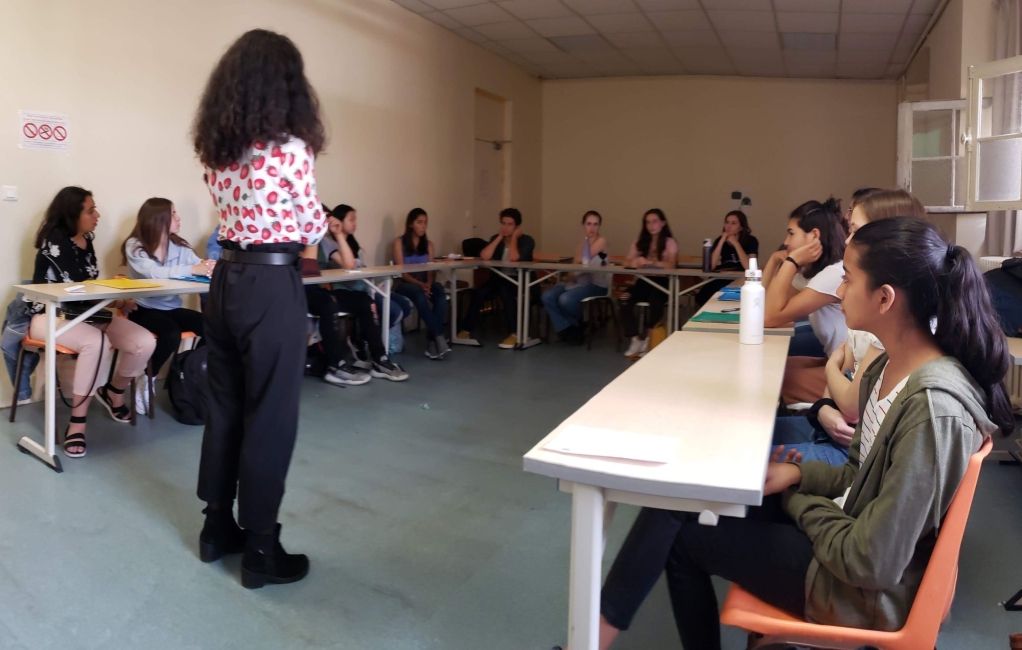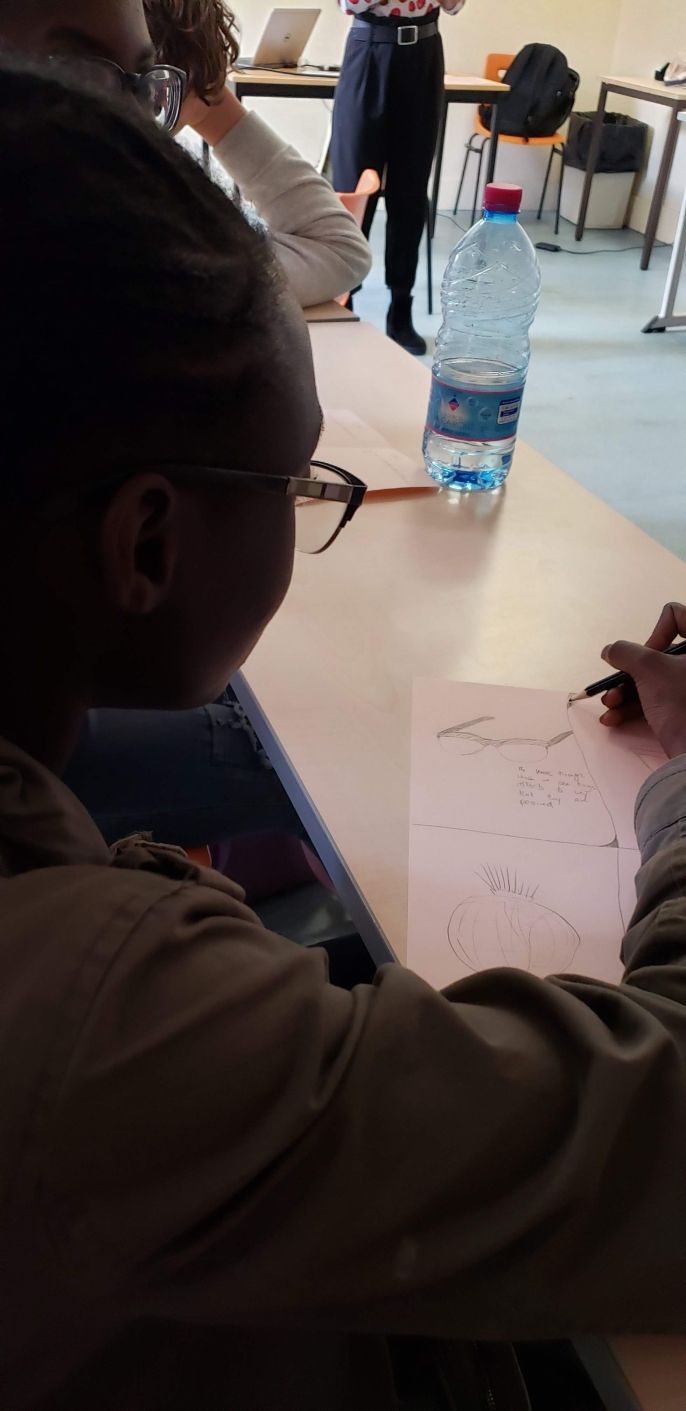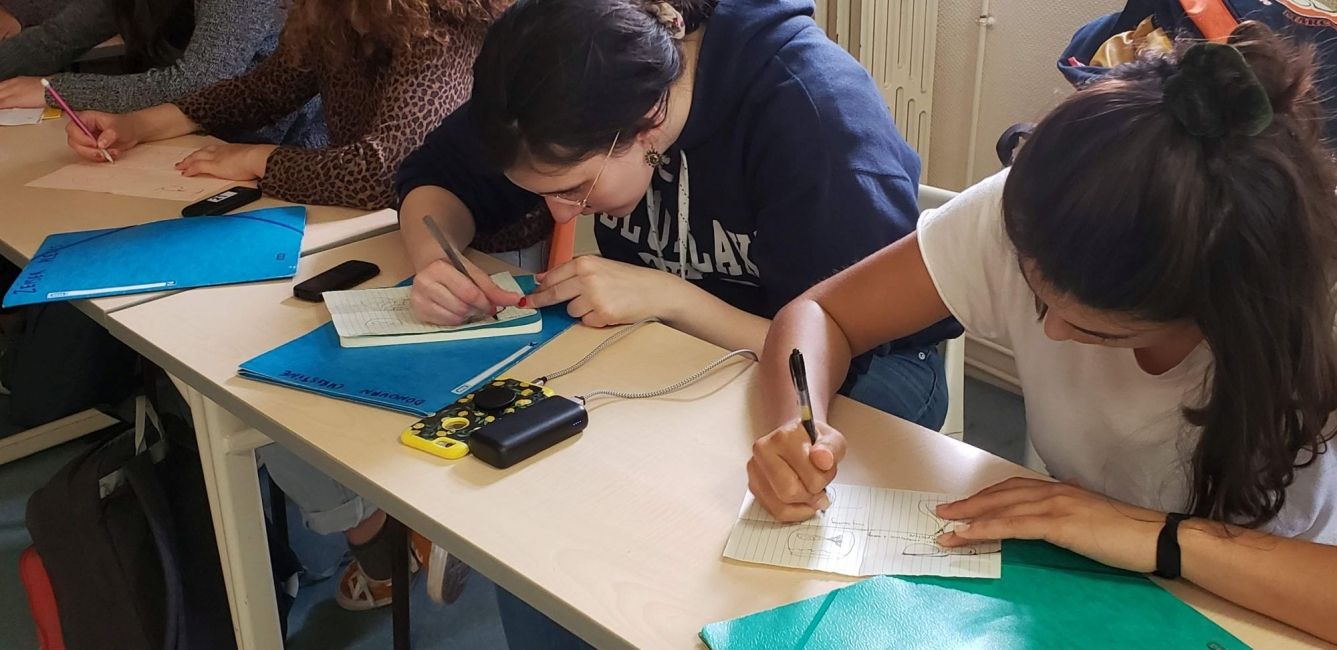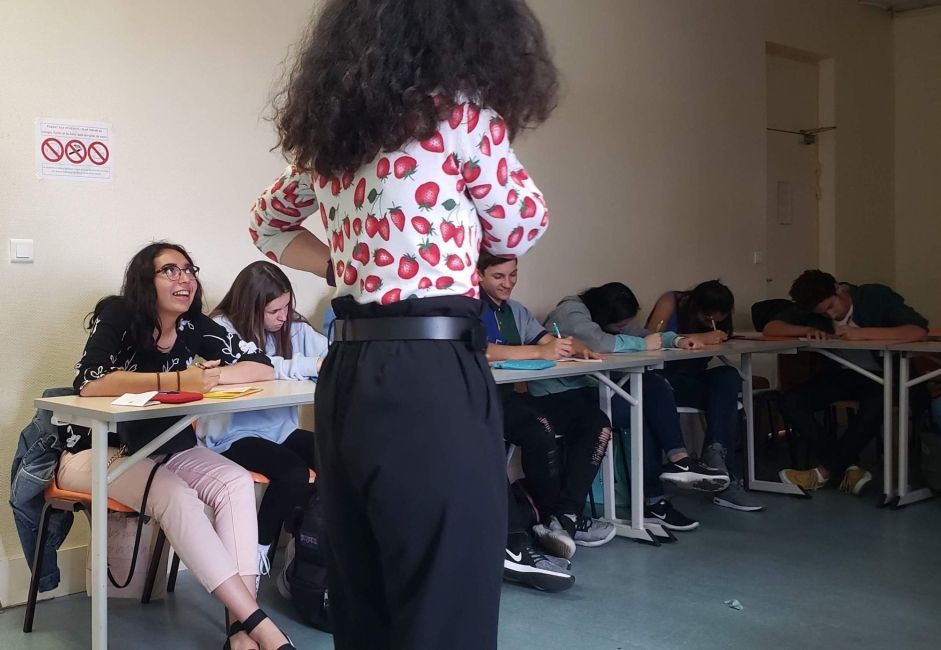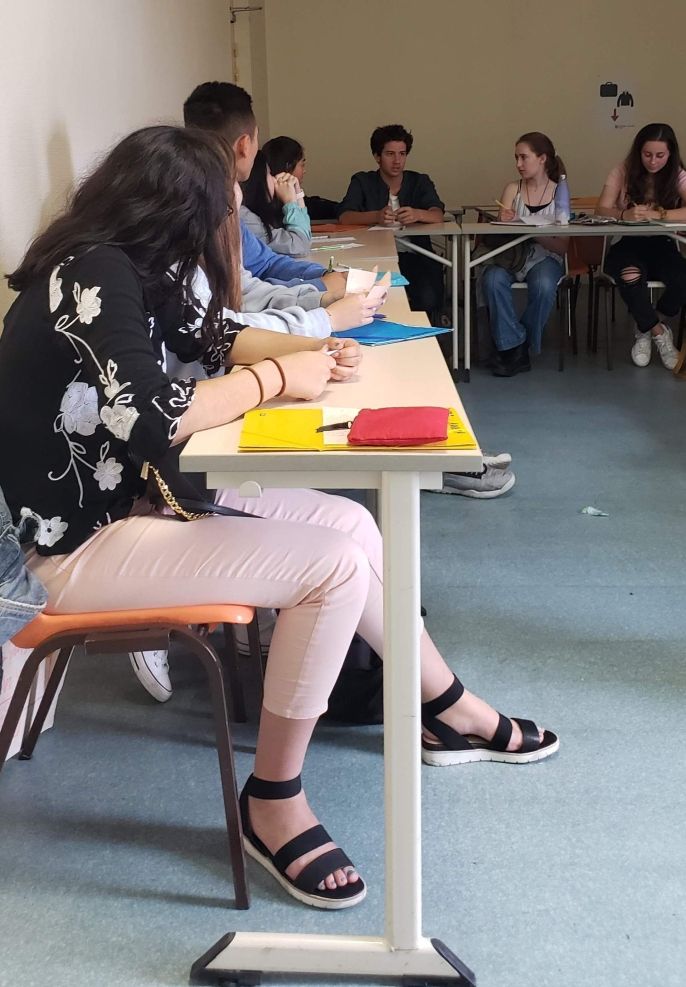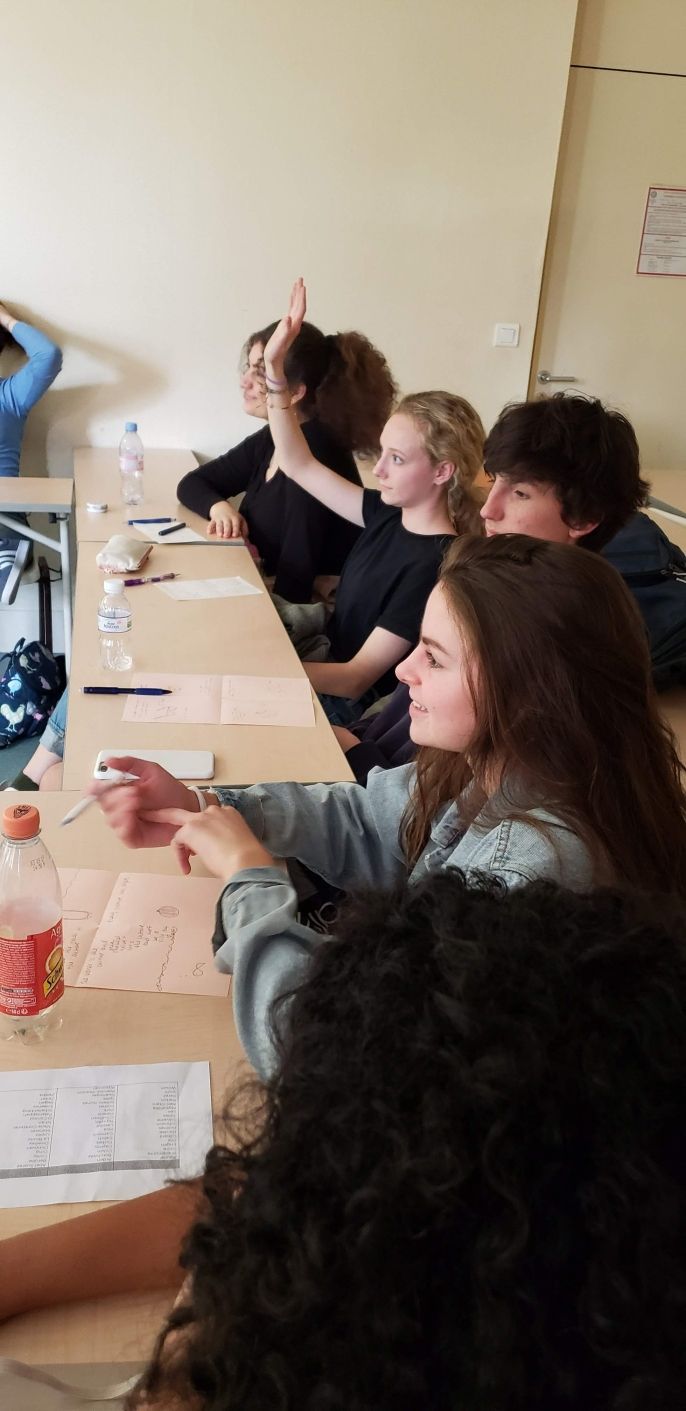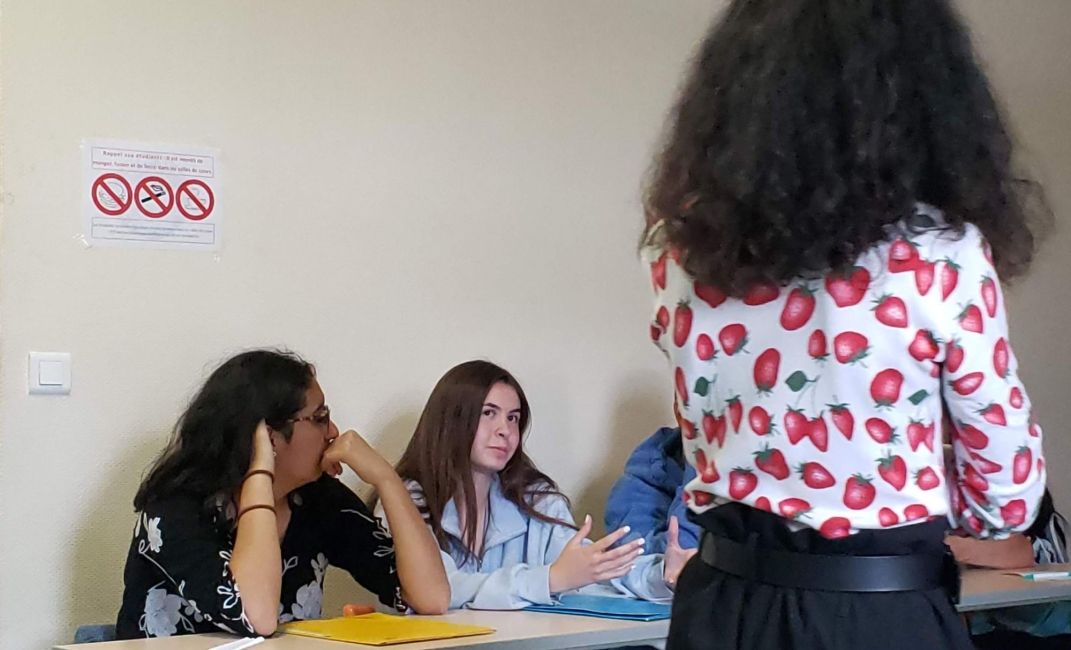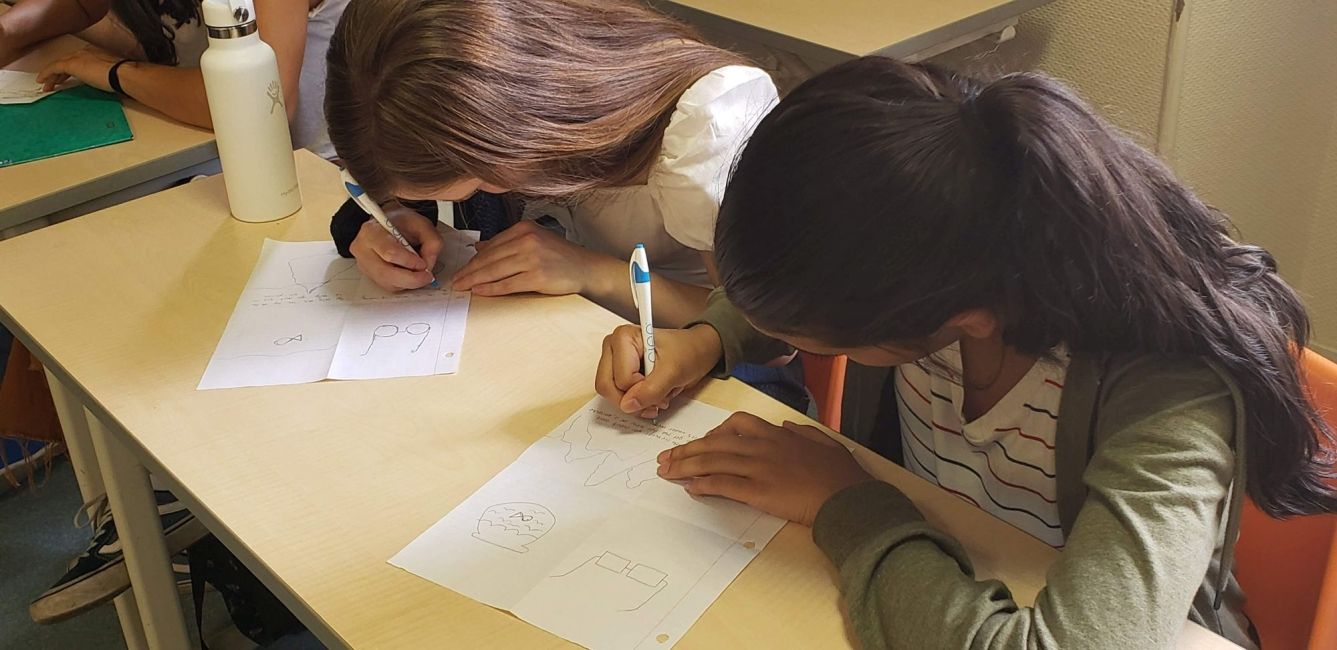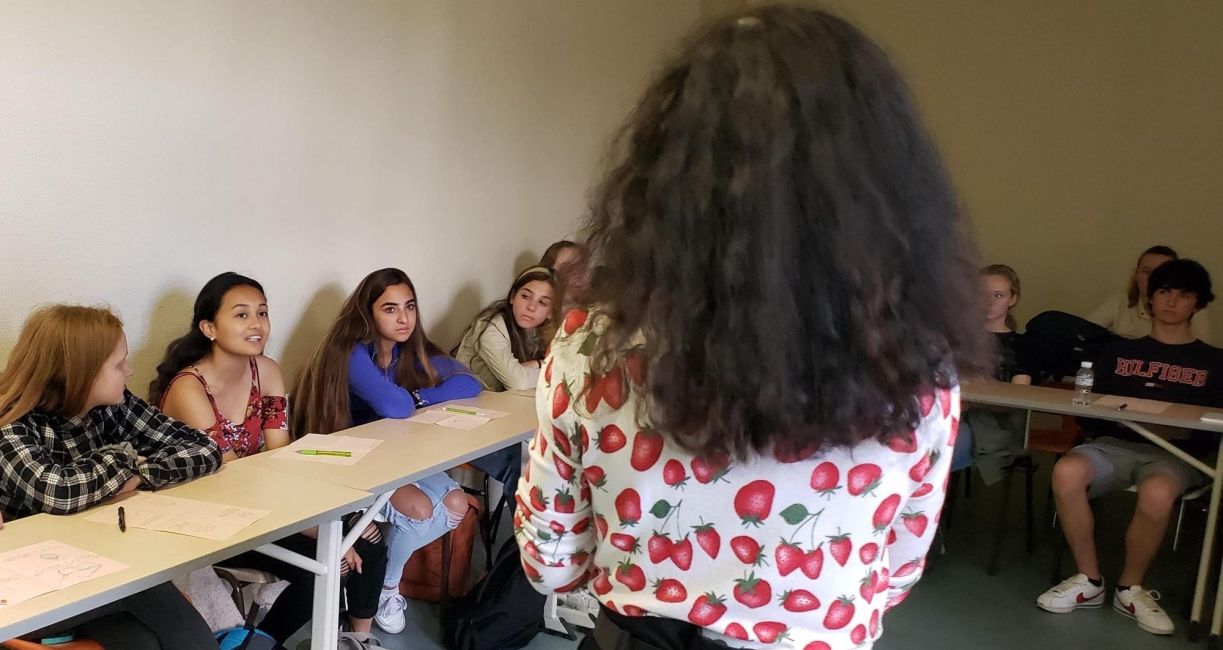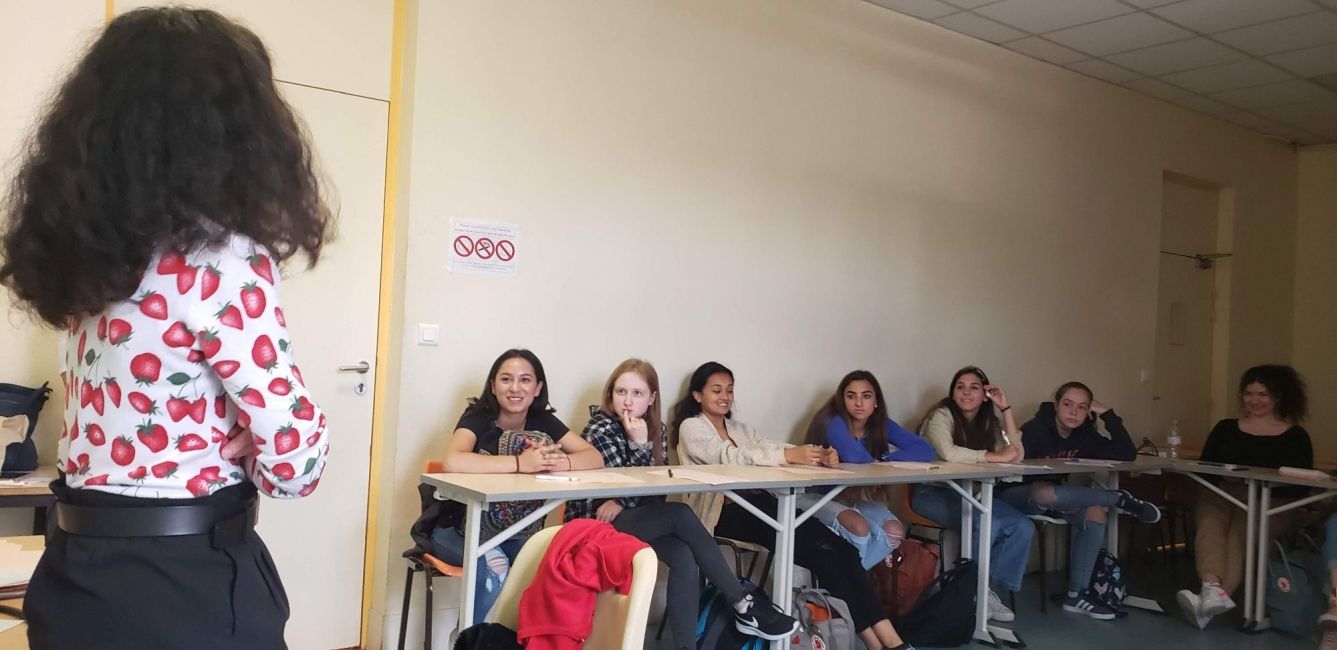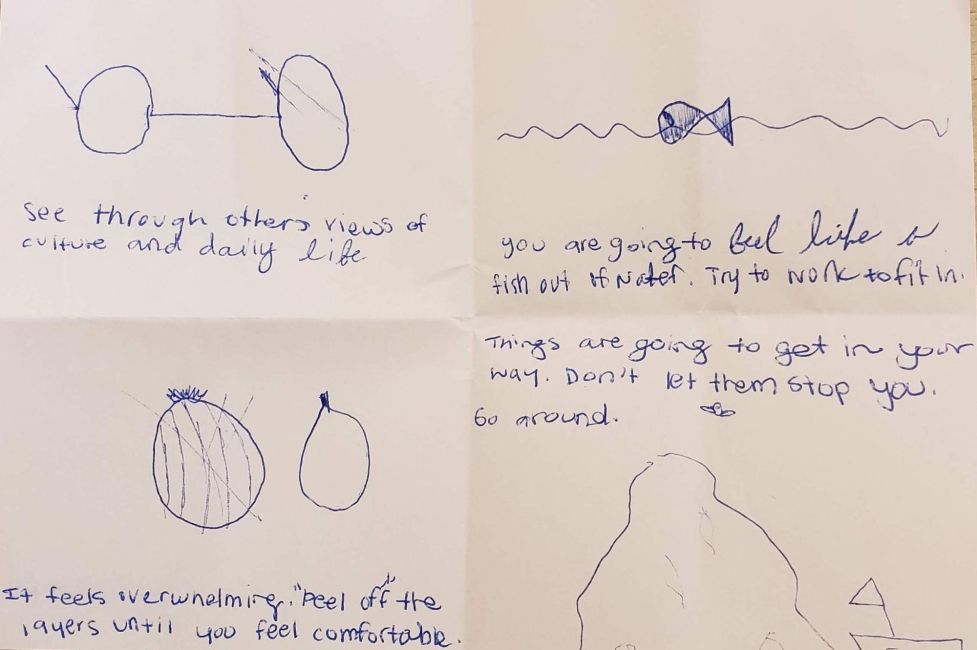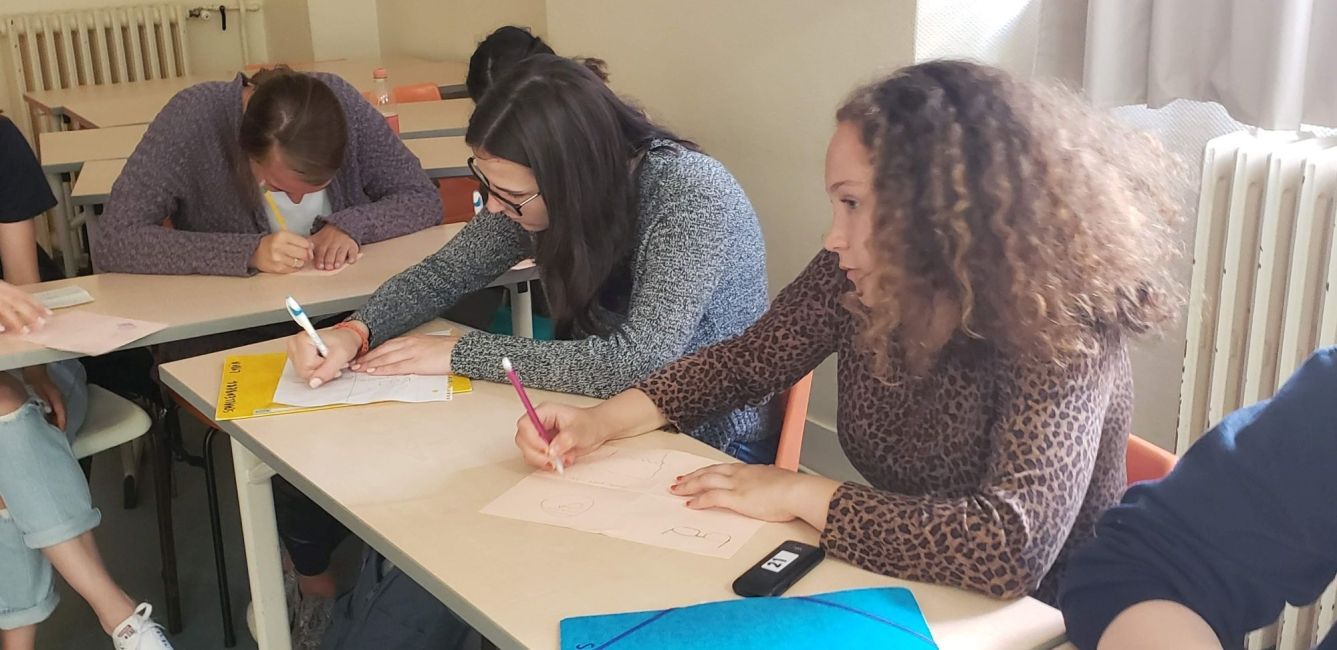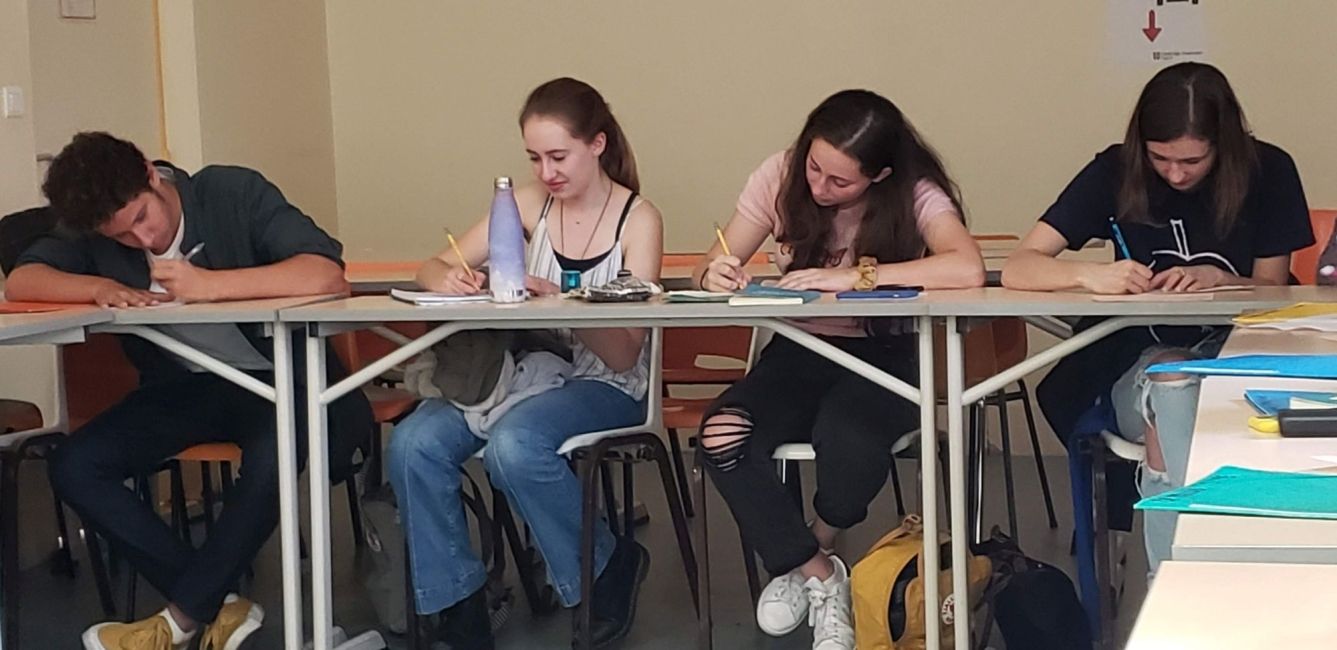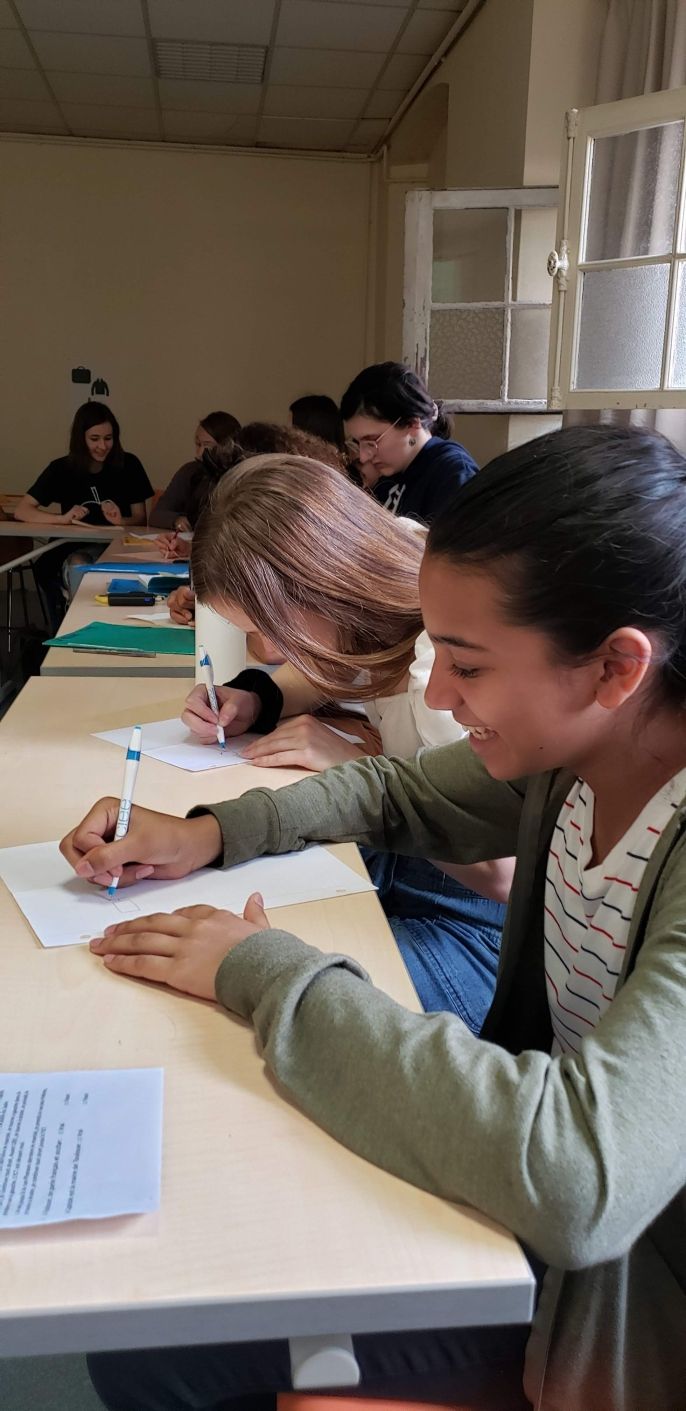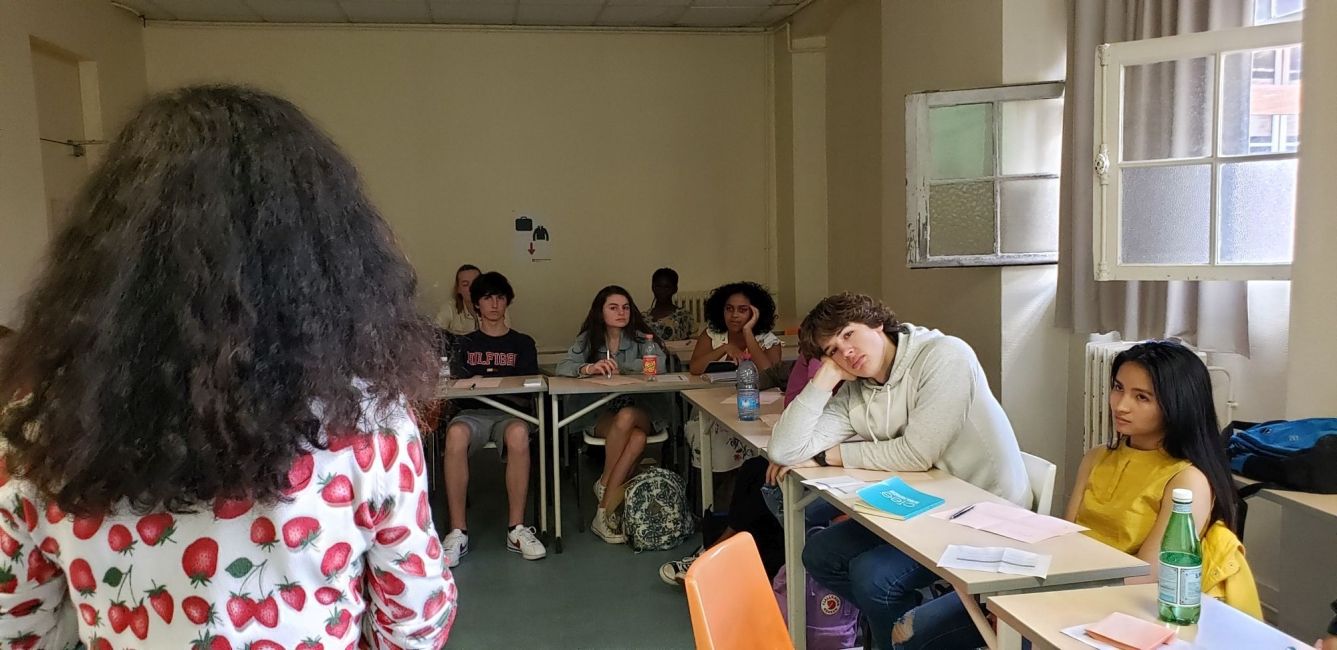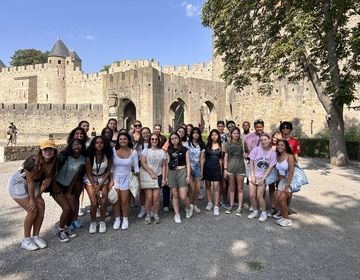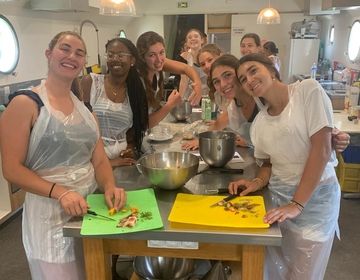Expanding Students’ Cultural Awareness in Toulouse
One of the most important parts of the CIEE Toulouse Orientation is center Director Isabelle Jaffe’s Introduction to Cultural Differences workshop. Meet Isabelle.
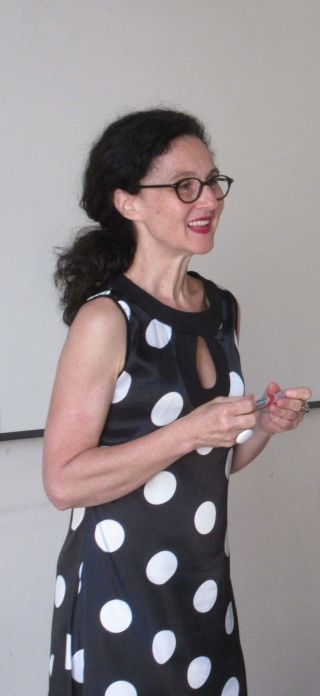
Isabelle starts off by asking students to reflect and try to explain why language and culture are so inseparable. After a number of examples and explanations by the students, the group concludes that “to speak another language is to speak another culture.”


Isabelle tells the students a story of a dinner she had with an American friend. After dinner, her friend was surprised and upset that she had not left a tip, until Isabelle explained that in France, the tip is included in the bill and there is no need to add additional tip. Having different lenses can thus lead to misinterpretations.
Students discuss specific examples of what they have observed so far and struggle to understand, especially in their host families, and the ways in which they are perceiving aspects of French culture via their own lenses.

Isabelle creates a safe space for students to lean into their discomfort and grow in their cultural understandings. Misunderstandings happen all the time in our increasingly multicultural and globalized world. Despite the increased potential for tension, there are more opportunities to develop empathy and understanding across cultures.
The group discusses the metaphor of a “fish out of water”. “What makes you feel uncomfortable and disoriented?,” asks Isabelle. Students cite the language barrier, the homesickness, learning directions in a new city, among other cultural differences. Isabelle reassures them: “If you are not uncomfortable, it’s because you are not present. Being uncomfortable is a good sign that you are engaged in the adaptation process.”
The next drawing is that of an “onion,” and students discuss how culture has multiple layers, including individual, regional, linguistic differences, as well as the layers of the onion potentially representing the stages of integrating into a new culture. One group mentioned that “onions make you cry,” and sometimes facing new situations can cause strong emotions.
The final metaphor involved an “iceberg,” and one student commented that “there are always going to be obstacles that come your way and you need to figure out a way to get around them.” Isabelle encourages students to think about the visible and invisible aspects of culture. Much like we only see a small part of an iceberg, tourists who spend just a few days in a city get to know its more visible aspects, such as famous buildings and other attractions. By contrast, CIEE students in Toulouse are able to go deeper and start to understand what’s below the surface, in terms of French cultural perspectives.
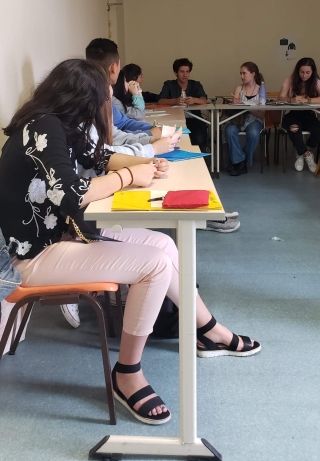

The discussion turns to differences they may have noticed between their host families and their family at home. Students discuss differences in the eating schedule and portion size. They note that most of their families here in France eat a lot later than in the U.S. and they eat several courses. Cheese and bread is eaten last between the main course and dessert. Some students also dicuss differences in how families express love and appreciation.

Students also make the observation that they have seen a lot more people smoking here in France as compared to the United States. “You don’t have to accept or like an aspect of another culture, but at the very least, you should strive to understand where the practice comes from,” reflects Isabelle.
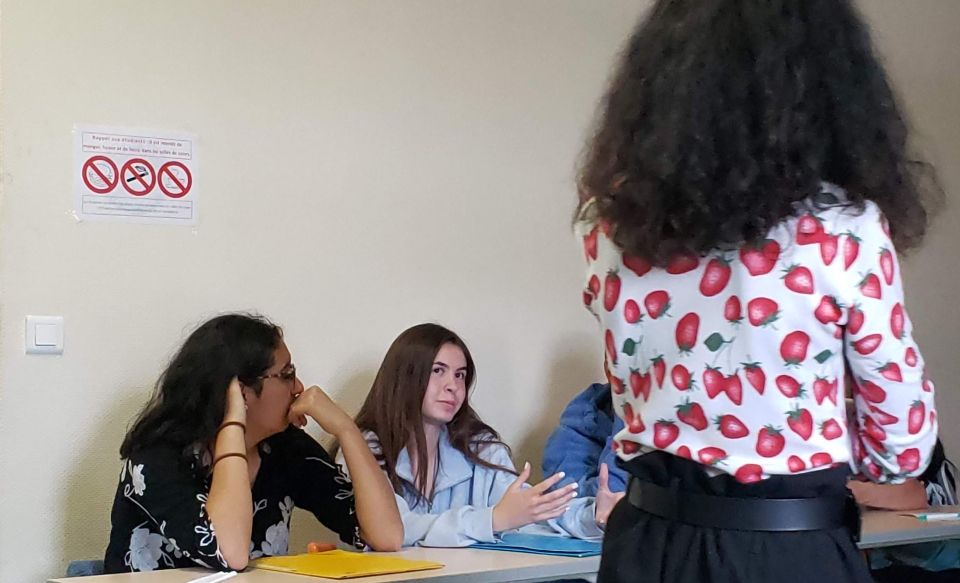
To wrap up the session, Isabelle asks students to relate what stereotypes they have heard about French people before coming to France and what stereotypes they think French people have about Americans. This discussion turns very lively as students laugh about and analyze stereotypes they have learned. This closing serves as a way to both release tension and as a bridge to the next few sessions of intercultural dialogues; over the next few weeks, students will discuss observations of moments when they have felt uncomfortable and they will analyze them using the D.I.E. framework (describe, interpret, evaluate).

At the Toulouse Study Center, we are certainly very lucky to have Director Isabelle Jaffe to facilitate students' intercultural understandings. When asked why she places such an emphasis on culture, Isabelle says:
| I am used to teaching College students an intercultural course, but I have to say, I love these interactions with High School students! They come with a fresh perspective and in a way are more malleable than their elders (in a nice way!). These groups are really diverse, some of them have grown up in a bi-cultural environment and are invaluable assets to these conversations. Some others have never left the U.S., and they are confronted with the challenging yet extremely enriching discovery that the world is much larger than the boundaries they grew up in. There is nothing more gratifying for me than seeing them opening up and embracing cultural differences and all CIEE staff members and Program Leaders are there to accompany them on this adventure. |
When traveling abroad, CIEE students are taken out of their comfort zone and face cultural misunderstandings but these tensions promote awareness and empathy.
Related Posts
Pot de départ: À bientôt!
After four eventful weeks, our Global Navigators have "mixed feelings" about parting ways. It can be difficult to switch back to everyday life after such a transformational experience. As highlighted... keep reading
A visit to the past
This week, students spent time visiting the medieval fortified city of Carcassonne.
Atelier Pâtisserie!
Students braved high temperatures this week and got to brush up on their culinary skills during a pastry workshop! They worked in small groups to create a variety of French... keep reading
